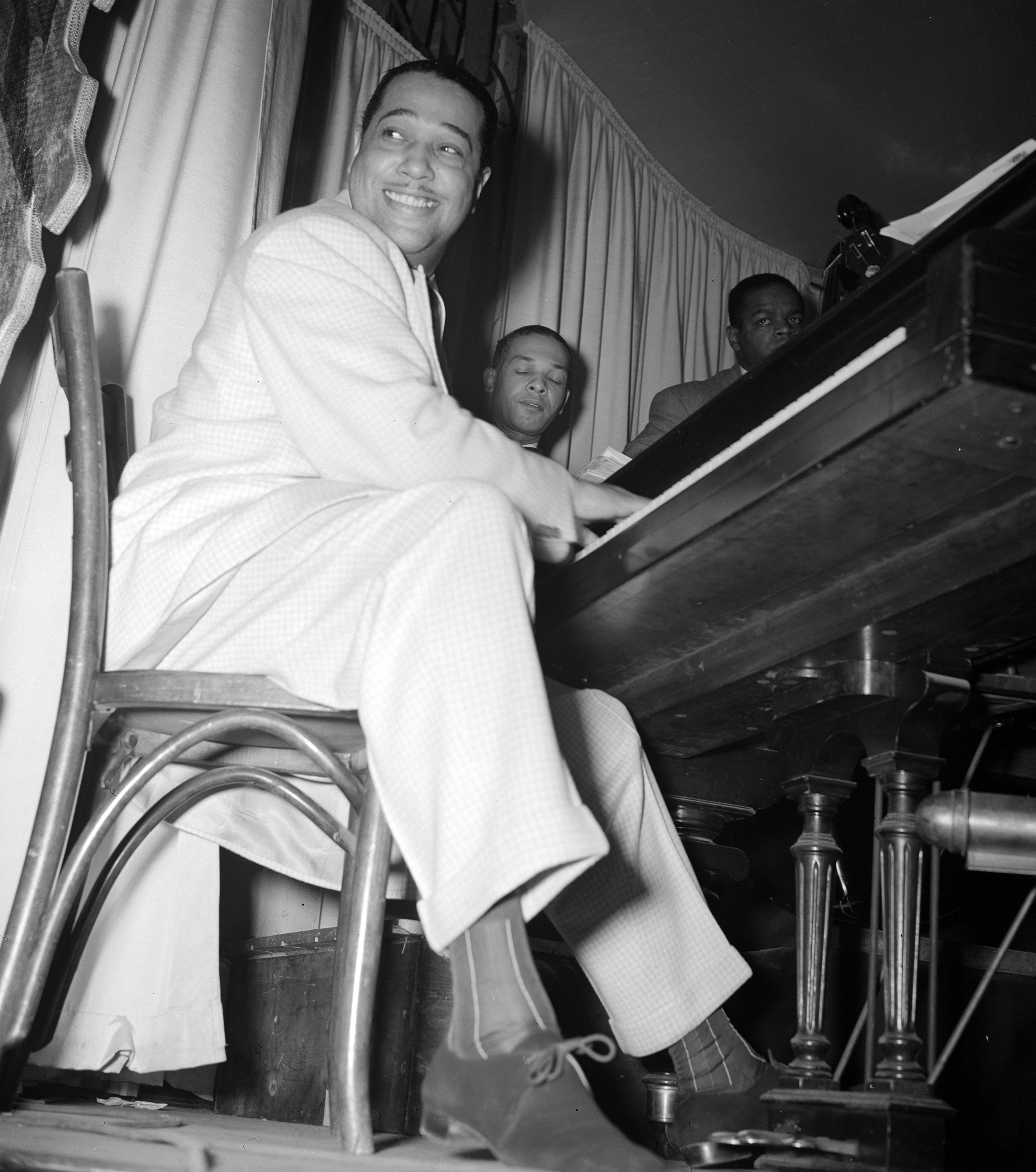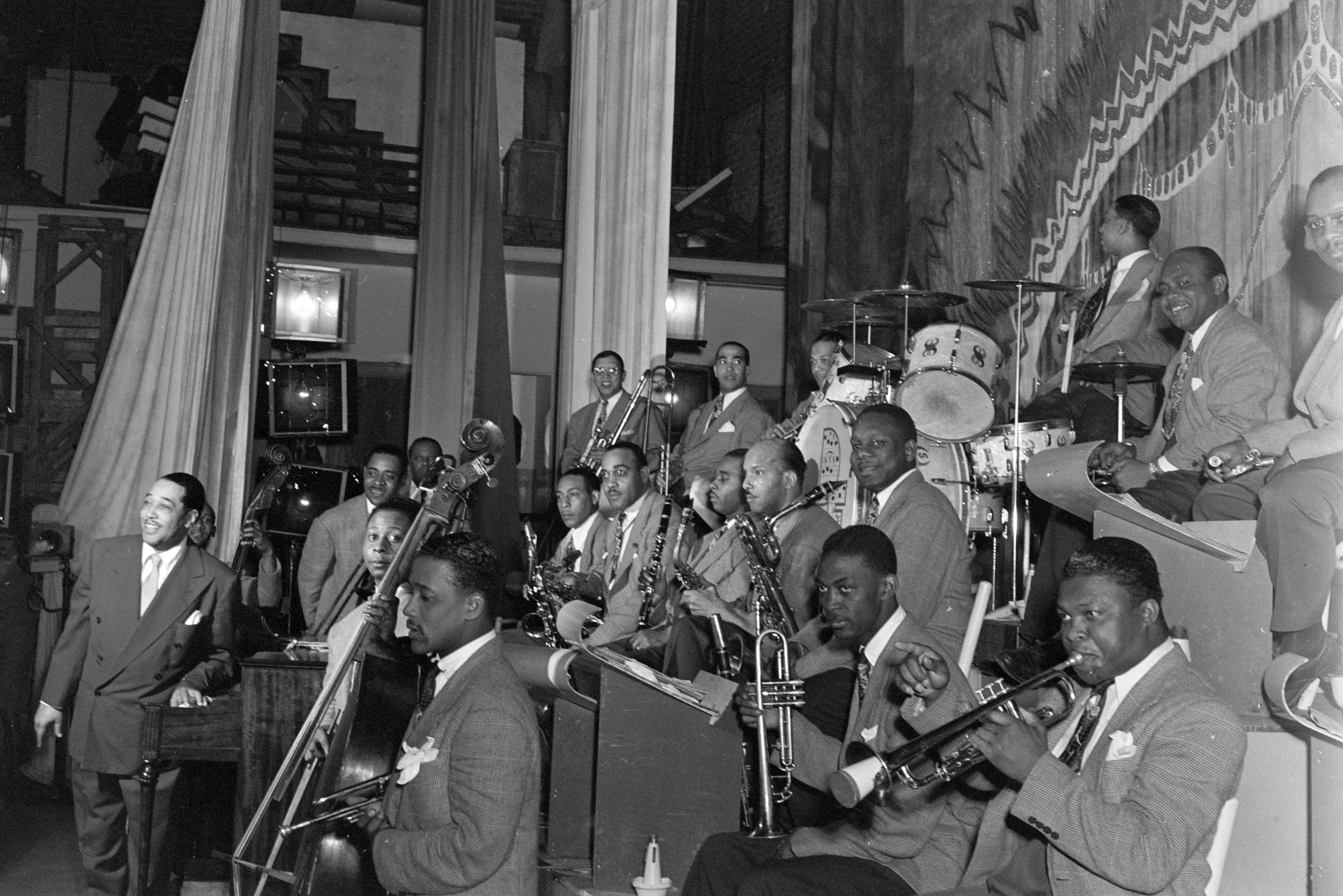Ellington, Duke (1899-1974), was an American jazz bandleader, composer, and pianist. He rates as one of the greatest figures in jazz and, according to many critics, its most significant composer.

Edward Kennedy Ellington was born on April 29, 1899, in Washington, D.C. He began playing piano at the age of 7 and made his professional debut at 17. He moved to New York City in 1923 as a member of Elmer Snowden’s band, the Washingtonians. Ellington soon took over the band, which grew from 5 pieces to 12 pieces by 1931. From 1927 to 1932, the Ellington band was the house band at the Cotton Club in Harlem. There, they played a rhythmic, exotic sound called jungle music.

The band’s reputation gradually grew through many recordings of Ellington compositions, including “Mood Indigo” (1930), “Creole Rhapsody” (1931), “It Don’t Mean a Thing If It Ain’t Got That Swing” (1932), “Sophisticated Lady” (1933), “Solitude” (1934), and “In a Sentimental Mood” (1935). The mid-1930’s to the mid-1940’s is generally considered Ellington’s most creative period. Many of his most highly regarded recordings were made during this time, including “Harlem Air-shaft” (1940), “Jack the Bear” (1940), “Ko-Ko” (1940), and “Concerto for Cootie” (1940). In 1939, Billy Strayhorn joined Ellington’s band as a composer, often with Ellington, and arranger. He composed “Take the A Train” (1941), which became the band’s theme song.
Loading the player...Duke Ellington
Many of Ellington’s key musicians—such as saxophonists Johnny Hodges and Harry Carney—remained with him for several decades, contributing to the band’s readily identifiable sound. Other important musicians were tenor saxophonists Ben Webster and Paul Gonsalves, trombonists Joe Nanton and Lawrence Brown, clarinetist Barney Bigard, bassist Jimmy Blanton, and trumpeters Rex Stewart, Clark Terry, Cootie Williams, and Ray Nance.
Beginning in the 1940’s, Ellington composed longer works, such as Black, Brown, and Beige (1943). In 1959, he won the Spingarn Medal, the highest honor given by the National Association for the Advancement of Colored People. During the 1960’s, Ellington wrote several film scores and began composing sacred music. Music Is My Mistress (1973) is Ellington’s autobiography. He died on May 24, 1974. Mercer Ellington, Duke’s son, was a trumpeter, composer, and record company executive. He also led the Ellington band for several years after his father’s death.
